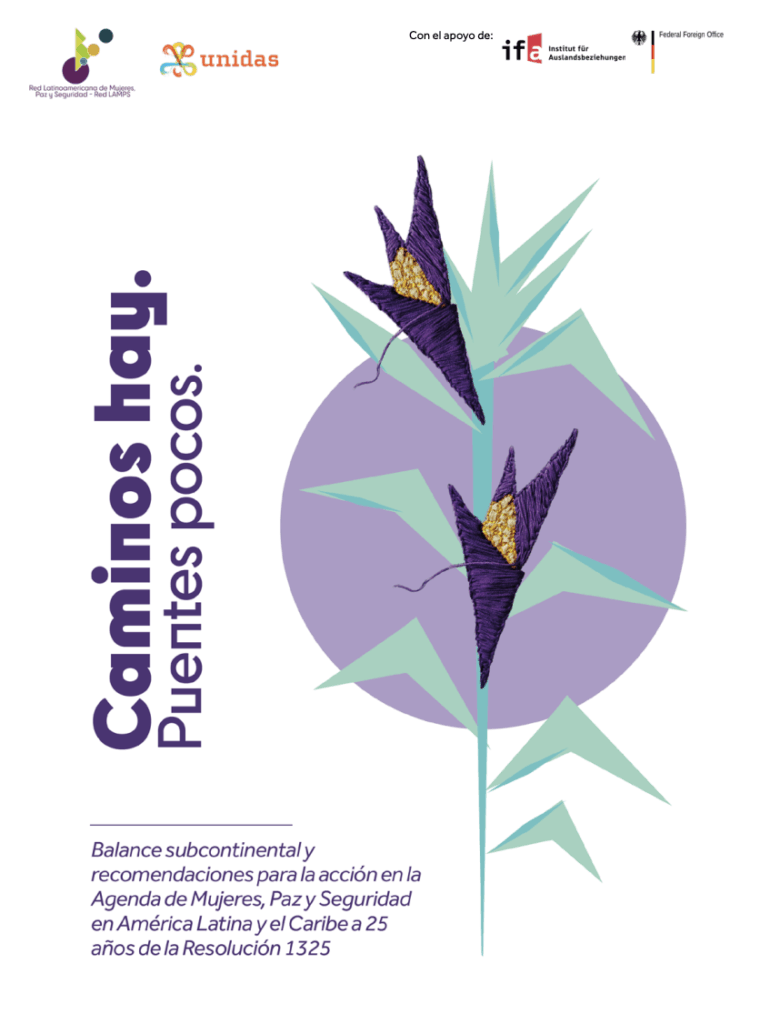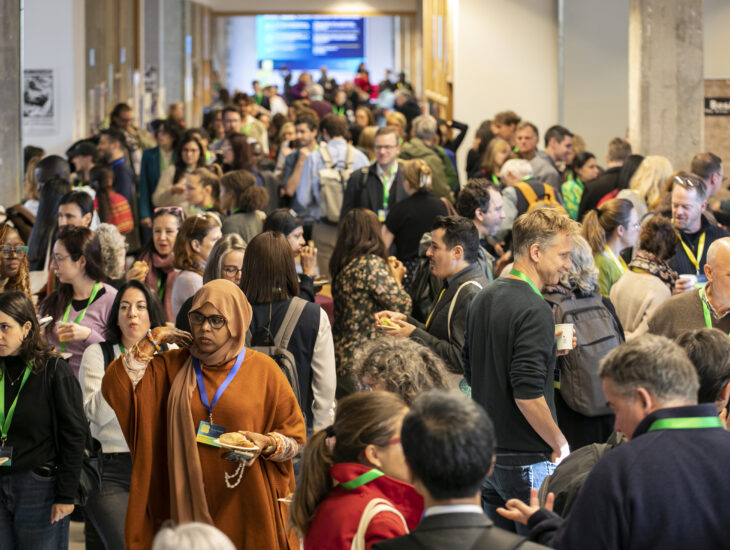On 26 November, the Latin American Network of Women, Peace and Security (LAMPS), of which ICIP is a member, presented the report Caminos hay. Puentes pocos (There are Paths. Few bridges), a subcontinental assessment examining the state of the Women, Peace and Security (WPS) Agenda 25 years after the adoption of UN Security Council Resolution 1325. The launch took place in a virtual public event.
This is the first study of its kind in the region, with information collected in 33 countries and 14 colonial enclaves, and incorporating 11 national and contextual investigations conducted in Brazil, Bolivia, Chile, Colombia, Ecuador, Guatemala, Honduras, Mexico, Paraguay, Venezuela, and within the Latin American diaspora.
An unprecedented regional perspective
The report offers an “expanded snapshot” of the region, identifying advances, tensions, and shared challenges in implementing the WPS Agenda. Among its key findings, it highlights that the Agenda is not an imported framework, but rather one rooted in the historic leadership of women’s movements and feminist activism from the Global South, especially in community-based and grassroots work.
The study also shows how the Agenda has been appropriated and reinterpreted across territories, generating diverse pathways. Still, also significant gaps between the actors involved: feminist movements, state institutions, military forces, international cooperation, and multilateral bodies. One of the central conclusions points to the lack of bridges between these actors, which hinders the development of comprehensive and sustained policies.
Urgent challenges for the region
The assessment also identifies critical issues requiring urgent attention: the expansion of organised crime, femicides, violence linked to electoral processes, territorial and environmental tensions, the situations in Haiti, Nicaragua, Ecuador, Paraguay and Honduras, and the risks faced by women human rights defenders and community leaders.
It also notes that the regional agenda has focused more on protection and justice, while essential elements such as dialogue, memory, and locally driven peacebuilding remain underdeveloped.
Recommendations for the next 25 years
The report puts forward a broad set of recommendations aimed at strengthening the WPS Agenda over the next quarter century, including:
- fostering stable, multi-actor dialogue spaces beyond mere consultation,
- strengthening historical memory and recognising the role of women in building peace,
- rethinking concepts of security through feminist and community-centred approaches,
- recognising and protecting women human rights defenders in contexts of escalating violence,
- addressing the intersections between organised crime, contemporary authoritarianism and gender inequality,
- ensuring a more active role for diaspora communities in peace and security policies,
- and connecting the WPS Agenda with the Climate, Peace and Security Agenda.
The role of ICIP within the LAMPS Network
ICIP is part of the LAMPS Network together with organisations from across the region, including CIASÉ (Colombia), SERAPAZ and JASS Mesoamérica (Mexico), CINEP/PPP (Colombia), ACI Participa (Honduras), SERPAJ (Paraguay), Humanas (Chile), Think Twice (Brazil), Rediálogo (Venezuela) and Mujer Diáspora (Spain/Barcelona).
The publication of this assessment marks an essential step in strengthening joint efforts to build peace from a feminist, regional and decolonial perspective.




